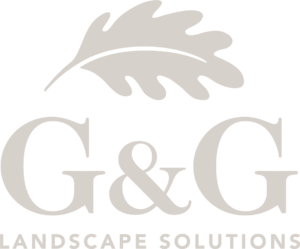Effective irrigation is the cornerstone of sustainable landscaping practices, offering not only environmental benefits but also substantial cost savings over the long term.
As water scarcity and conservation efforts continue to gain awareness, businesses and homeowners recognize the financial advantages of investing in efficient irrigation systems.
In this blog, we explore how proper irrigation techniques can translate into significant monetary savings while promoting responsible water usage. But first, we will answer some of the most frequent questions we receive regarding irrigation.
How to Save Money with Proper Irrigation:
3. Preservation of Landscaping Investments
4. Compliance with Regulatory Requirements
Irrigation FAQs
To help you have a better understanding of the topic, here are answers to some of the most common questions people ask about irrigation.
What are the means of irrigation?
The means of irrigation encompass drip systems, which deliver water directly to plant roots, sprinkler systems that mimic rainfall, and flood irrigation where fields are flooded with water.
What is the process of irrigation?
Irrigation involves supplying water to plants through methods like drip irrigation, which targets roots directly, or sprinkler systems, which mimic natural rainfall.
What is the main purpose of irrigation?
Irrigation primarily serves to provide plants with essential water for growth, helping maintain their health and vigor throughout different seasons and conditions. Since irrigation is one of the most important parts of landscape design, installing the right irrigation system the right way is vital to the long-term health of your landscape.
What are the types of irrigation?
Types of irrigation include surface irrigation, where water flows over the soil, sprinkler irrigation, drip irrigation, subsurface irrigation, and manual irrigation methods like hoses and watering cans.
How do you estimate the cost of irrigation system?
Estimate irrigation system costs by considering factors like the chosen system type, the area to be irrigated, the water source availability, and the labor required for installation.
Contact us to learn more about the estimated costs of irrigation systems.
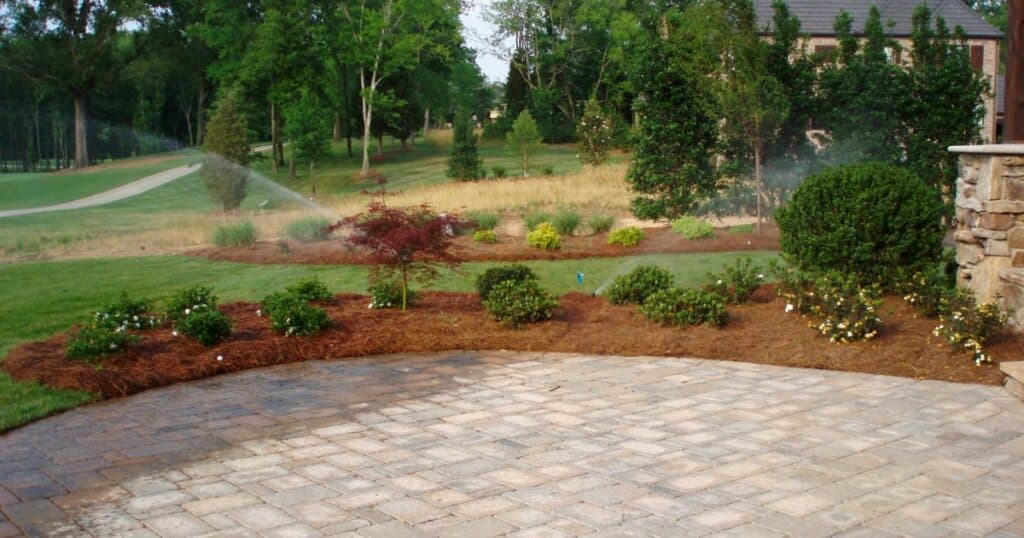
How to Save Money with Proper Irrigation
Properly installing the best irrigation system for your landscape design can make a huge difference in the cost of watering, repairs, and more over time.
Here are the top ways that proper irrigation can save you money.
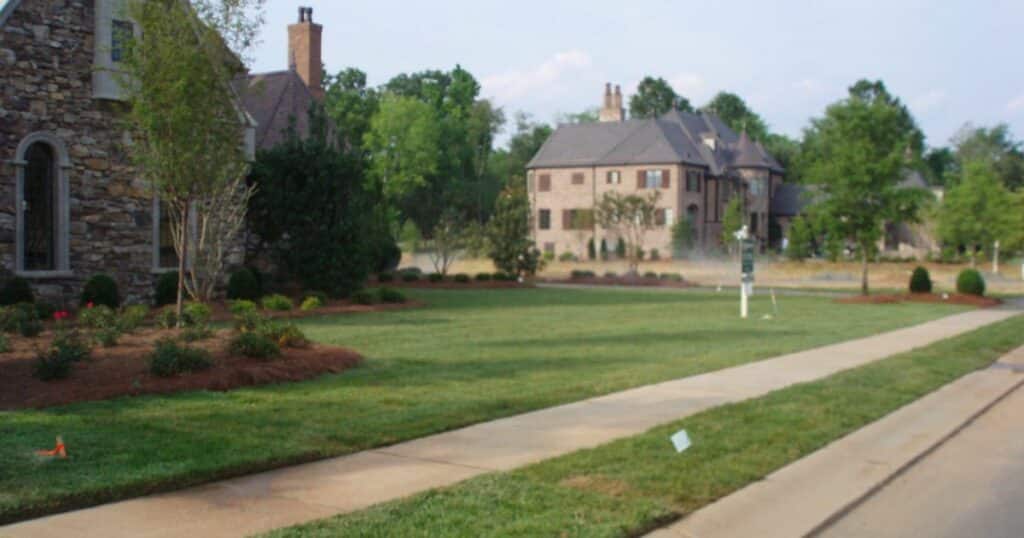
1. Reduced Water Consumption
One of the most immediate ways that proper irrigation saves money is by minimizing water consumption. Traditional irrigation methods, such as manual watering or outdated sprinkler systems that aren’t properly zoned, often result in overwatering due to inefficiencies.
In contrast, modern irrigation technologies, such as drip irrigation systems and smart controllers, deliver water directly to the root zone of plants, minimizing evaporation and runoff.
Example:
Imagine a commercial property with extensive landscaping that relies on conventional sprinklers for irrigation. Despite efforts to adhere to watering schedules, significant water loss can occur due to evaporation and overspray.
By transitioning to a drip irrigation system equipped with soil moisture sensors and weather-based controls, the system automatically reduces water usage by up to 50%, resulting in substantial savings on water bills over time.
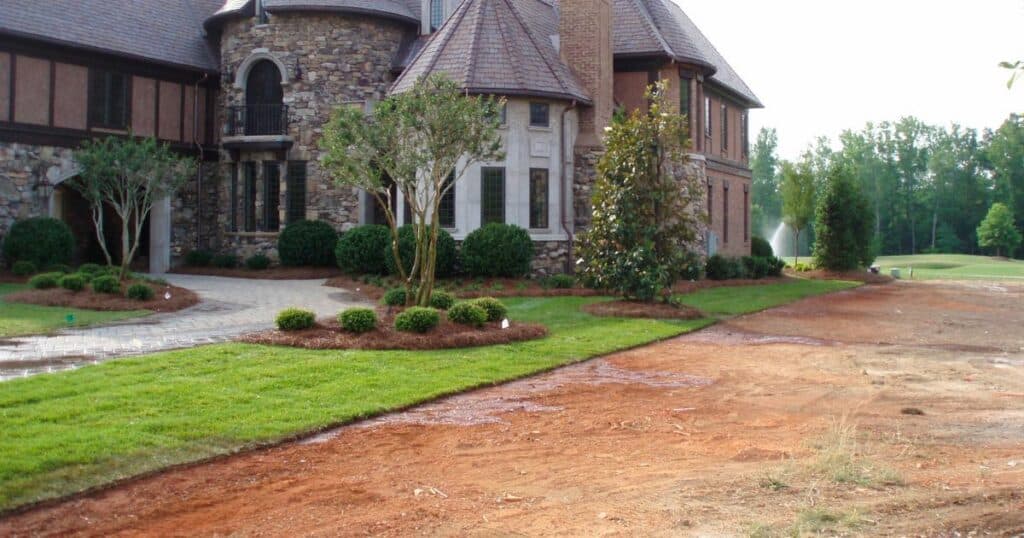
2. Lower Maintenance Costs
Proper irrigation practices conserve water and contribute to the longevity and health of plants, shrubs and flowers, reducing ongoing maintenance expenses. For instance, overwatering can lead to soil erosion, root rot, and pest infestations, necessitating costly repairs and treatments.
By calibrating irrigation systems to deliver the appropriate amount of water based on plant requirements and soil conditions, property owners mitigate the risk of damage and prolong the lifespan of their landscaping.
Example:
Consider a residential lawn that suffers from fungal diseases and patchy growth due to excessive moisture from indiscriminate watering. By investing in soil analysis and retrofitting the irrigation system with adjustable nozzles and pressure regulators, homeowners optimize water distribution and alleviate stress on the turf.
As a result, they experience fewer issues with disease and weed proliferation, leading to lower expenditures on fungicides and herbicides. Additionally, smart irrigation systems can be set to only water when rain has not been abundant, which is crucial in southern climates where both heat and summer storms are common and cause inconsistencies in proper moisture.
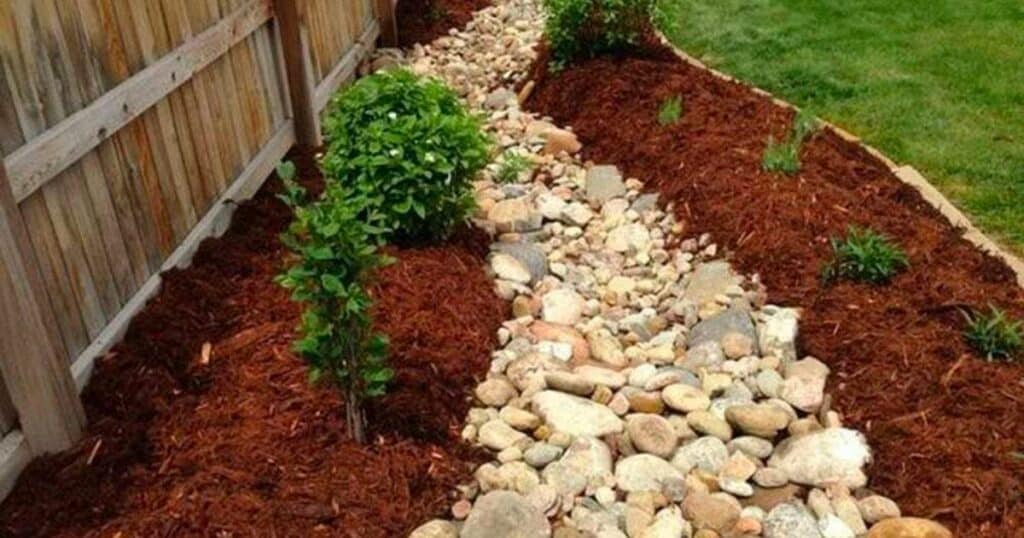
3. Preservation of Landscaping Investments
Proper irrigation serves as a safeguard for landscaping investments, protecting against the financial repercussions of plant loss and property damage. Inadequate watering or erratic irrigation schedules jeopardize the health and vitality of vegetation, compromising the aesthetic appeal and functionality of outdoor spaces.
By implementing a targeted irrigation strategy tailored to the specific needs of plant species and microclimates, property owners safeguard their investments and ensure the long-term vitality of their landscapes.
Example:
Picture a corporate campus flushed with ornamental trees, shrubs, and flowering perennials that serve as focal points of the landscape design. Through proactive irrigation management and regular maintenance, property managers mitigate the risk of plant mortality and maintain the visual integrity of their common spaces.
By preserving the aesthetic appeal and ecological balance of the landscape, they enhance the property’s market value and reinforce its reputation as a premier destination for employees and visitors alike.
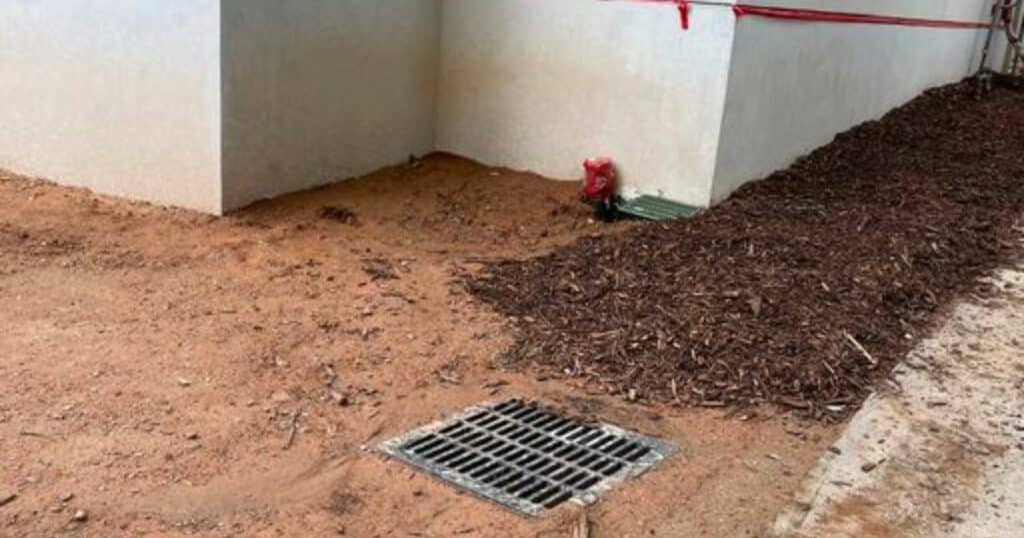
4. Compliance with Regulatory Requirements
In many regions, water conservation regulations and mandates impose restrictions on outdoor water usage, necessitating compliance measures to avoid penalties and fines. Proper irrigation practices not only align with regulatory requirements but also position property owners as responsible stewards of natural resources.
By investing in water-efficient irrigation technologies and adhering to conservation guidelines, businesses and homeowners demonstrate their commitment to sustainability while avoiding potential financial liabilities associated with non-compliance.
Example:
In drought-prone regions facing stringent water restrictions, municipalities enact ordinances that limit the frequency and duration of outdoor watering activities. By retrofitting commercial properties with drought-tolerant landscaping and smart irrigation controllers, businesses mitigate the risk of exceeding allocated water quotas and incurring fines.
Through proactive measures to conserve water and comply with regulatory mandates, they safeguard their financial interests while promoting environmental sustainability within the community.
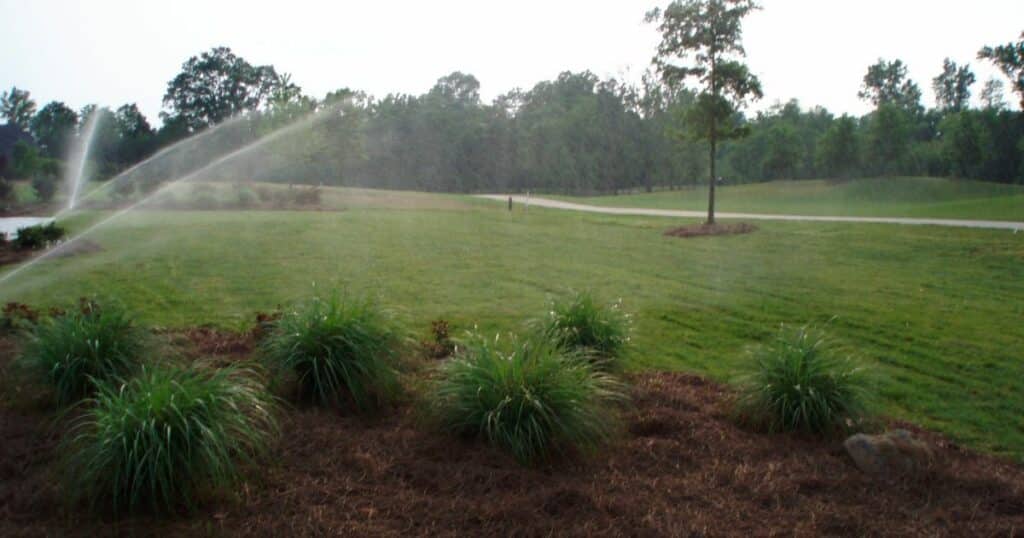
Adding Proper Irrigation to Your Landscape
Ultimately, proper irrigation practices offer many financial benefits that extend far beyond water conservation.
By reducing water consumption, lowering maintenance costs, enhancing energy efficiency, preserving landscaping investments, and ensuring regulatory compliance, property owners stand to reap substantial savings over the long term.
Additionally, embracing sustainable irrigation solutions and harnessing the power of technology and best practices can pave the way for a greener future while cultivating landscapes that flourish economically and environmentally.
When considering your landscape design plans and irrigation needs for either your residential or commercial space in the coming year, we invite you to work with our outdoor living consultants at G&G Landscape Solutions.
Contact us today for a FREE 20-minute consultation.
Our expert landscape designers are dedicated to bringing your landscape vision to life from initial installation to ongoing maintenance of your elevated outdoor environment.
